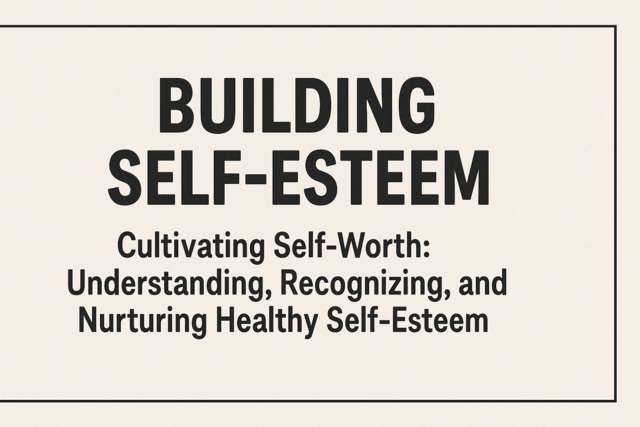While we have an innate understanding of stress and what it feels like to be stressed, defining stress can be tricky because we all react to it in different ways. However, stress can be defined as a physical, mental, or emotional strain or tension caused by our exposure to different occurrences in our lives. When we respond positively to these occurrences we do not feel stress. However, the minute we are faced with an occurrence that we feel we cannot handle, we may feel our stress mounting.
Stress is subjective to each individual; what can be considered a stressful event by one person may be less stressful to another. Therefore, stress is not caused by the event itself, but how an individual interprets the situation and deals with it. When an individual cannot cope with the demands placed on them and begins to feel negatively, this is considered a stress response.
Even though stress has become part of our everyday life, excessive stress can affect a person's health and emotional stability. It can also affect our overall quality of life by reducing productivity, creating, or exacerbating, existing health problems, and contributing to premature aging.
Suddenly, your peaceful state of mind shifts, your heart begins to race, your muscles tense, you tighten your grip on the wheel and you instantly become alert. However, the danger quickly passes; you are able to slow down or stop in time to avoid hitting the other driver. As you experience relief at not having an accident, your body begins to slowly relax; your breathing becomes normal again and you return to your calm pre-incident state.
We have all experienced this feeling where our bodies seem to reach a temporary state of high alert. This is how we have evolved to react to stress - we go into a state of high alert for a short period of time when we think we are in real or perceived danger. Once we realize we are no longer in danger our stress reaction switches off.
Adrenaline causes our pupils to dilate so that we can better see the danger; it increases our blood pressure and causes our hearts to beat faster. Cortisol increases glucose in your bloodstream, so that our bodies can use it to make energy. Cortisol also suppresses functions that are not required in a "fight or flight" situation. For example, it suppresses the digestive system, reproductive system and growth, since none of these systems are imperative to saving us in the face of immediate danger.
Dr. Hans Selye, a Canadian endocrinologist, known as the father of stress-related research, called the negative stress that causes unpleasant symptoms and damage to our bodies "distress".
So is stress our friend or foe? It can be either, depending on the situation. However, we can learn to manage our stress better, reduce the negative and increase the positive effects it has on our lives.
Physical Symptoms of Stress
|
The physical signs associated with our "fight or flight" responses are:
Doctors who treat stress note that their patients show the following symptoms:
|
Note - Since some of these symptoms can also be caused by other factors, you should talk to your doctor to identify if your symptoms are stress-related.
Here are some of the mental symptoms you may experience due to stress:
You may also become:
|
Changing Behavior
Experiencing one or many of the above stress-related symptoms can modify your behavior making you indulge in excessive eating, drinking or smoking. Other behavior patterns could include excessive swearing, yelling and blaming others for your situation.
Controlling Stress
-
Trying to be aware of your own symptoms
-
Writing down what your individual symptoms and behaviors are when you feel stressed
-
Asking someone close to you, like a good friend or family member, to observe what is different about you when you are stressed
Once you can recognize the signs of stress ("stress pattern") you experience as an individual, you will be able to learn to control it better.
What are our "Stressors"?
What are our "Stressors"?
There are a variety of external stressors including:
Environmental Stressors � Extreme noise, traffic gridlock, excessive crowds, smog and other types of pollution can contribute to stress.
Social Stressors � Human interaction and communication can be a major stress in society. Things that people such as family members, bosses, co-workers, customer service representations or even neighbors say or do can ratchet up your stress levels. Even happy events like planning a wedding, getting married, getting a new job or having a baby can contribute to stress.
Life Changing Events � Unhappy events like a loss of a close family member, job loss, accident, house fire, getting robbed and natural disasters can contribute to major stress.
Demands of everyday living-- Everyday living like paying your bills, doing your taxes, losing your wallet or losing your way while driving can cause stress. The social system we live under also imposes rules, regulations, deadlines, unnecessary work, useless meetings, non-stop e-mails and office politics--all which contribute to our stress levels.
We also have a little voice in our head that talks to us and gives us unsolicited positive and negative advice. For example, we may have a voice telling us "You look great today; this suit makes you look really good." On other occasions, it way say something like "The salesperson is ignoring you; you should do something about it." This is called "self-talk" and it sometimes triggers stress reactions within us.
We also react to what is known as "anticipatory stress." This is stressing about things that might happen. You may start thinking about how to pay your mortgage if you lost your job or what you would do if your car stalled on the highway.
Finally, we become stressed when things don't go the way we planned. For example, a document that we thought was perfect is changed by a manager or your performance appraisal was pretty good, but you expected more praise or a bonus for all your hard work.
The reason is that stress is not caused by the event itself but our perception and interpretation of the event and our stress reaction to it. For example, a mother requires her teenage son to call each day when he returns home from school. The mother anticipates this call at a certain time. If he does not call on time, the mother's stress level shoots up because of the inner voice setting up all types of anticipated scenarios of what could have happened to him.
However, by understanding where our stress originates from, we can create solutions that reduce stress by eliminating the stressor. In the mother's case, she gave her son a cell phone and called him if he did not call her after school. In most cases, he just got caught up watching television and simply forgot to call. However, having the option of getting in touch with him decreased the mother's anxiety and stress levels.
-
You can start by becoming more aware of what causes your stress reaction.
-
Listen carefully to your "self-talk" and write down examples of what it is saying to you.
-
Try to analyze why a particular event is bothering you (in the above example, it was the mother's fear that something bad could have happened to her child).
-
Figure out if your stress level went down, after you understood what was upsetting you.
Once you begin to identify what types of stress you are generating, you will be able to control your thoughts and reactions to events.






























